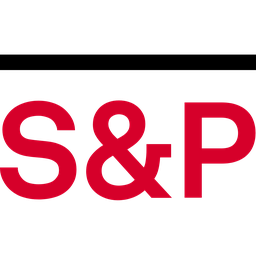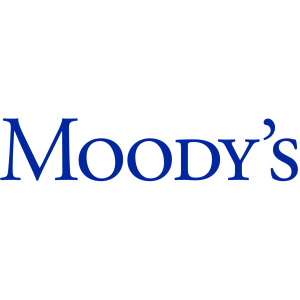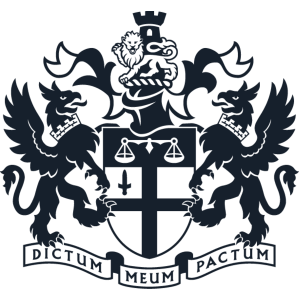
Hong Kong Exchanges and Clearing Ltd
HKEX:388

Profitability Summary
Hong Kong Exchanges and Clearing Ltd's profitability score is 66/100. We take all the information about a company's profitability (such as its margins, capital efficiency, free cash flow generating ability, and more) and consolidate it into one single number - the profitability score. The higher the profitability score, the more profitable the company is.

Score
We take all the information about a company's profitability (such as its margins, capital efficiency, free cash flow generating ability, and more) and consolidate it into one single number - the profitability score. The higher the profitability score, the more profitable the company is.
We take all the information about a company's profitability (such as its margins, capital efficiency, free cash flow generating ability, and more) and consolidate it into one single number - the profitability score. The higher the profitability score, the more profitable the company is.

Score

Score
Margins
Profit margins represent what percentage of sales has turned into profits. Simply put, the percentage figure indicates how many cents of profit the company has generated for each dollar of sale.
Profit margins help investors assess if a company's management is generating enough profit from its sales and whether operating costs and overhead costs are being contained.
Earnings Waterfall
Hong Kong Exchanges and Clearing Ltd

|
Revenue
|
17.3B
HKD
|
|
Operating Expenses
|
-7.4B
HKD
|
|
Operating Income
|
10B
HKD
|
|
Other Expenses
|
3.1B
HKD
|
|
Net Income
|
13.1B
HKD
|
Margins Comparison
Hong Kong Exchanges and Clearing Ltd Competitors

| Country | Company | Market Cap |
Operating Margin |
Net Margin |
||
|---|---|---|---|---|---|---|
| HK |

|
Hong Kong Exchanges and Clearing Ltd
HKEX:388
|
453.6B HKD |
57%
|
75%
|
|
| US |

|
S&P Global Inc
NYSE:SPGI
|
160B USD |
41%
|
27%
|
|
| US |

|
Intercontinental Exchange Inc
NYSE:ICE
|
100.9B USD |
38%
|
23%
|
|
| US |

|
CME Group Inc
NASDAQ:CME
|
94.5B USD |
78%
|
34%
|
|
| US |

|
Moody's Corp
NYSE:MCO
|
84.8B USD |
42%
|
29%
|
|
| UK |

|
London Stock Exchange Group PLC
LSE:LSEG
|
59.9B GBP |
21%
|
8%
|
|
| DE |

|
Deutsche Boerse AG
XETRA:DB1
|
48.6B EUR |
41%
|
28%
|
|
| CN |

|
East Money Information Co Ltd
SZSE:300059
|
362.8B CNY |
60%
|
81%
|
|
| US |

|
Coinbase Global Inc
NASDAQ:COIN
|
49.2B USD |
34%
|
39%
|
|
| US |

|
Nasdaq Inc
NASDAQ:NDAQ
|
44.6B USD |
26%
|
15%
|
|
| US |

|
MSCI Inc
NYSE:MSCI
|
44.3B USD |
54%
|
39%
|
Return on Capital
Return on capital ratios give a sense of how well a company is using its capital (equity, assets, capital employed, etc.) to generate profits (operating income, net income, etc.). In simple words, these ratios show how much income is generated for each dollar of capital invested.




Return on Capital Comparison
Hong Kong Exchanges and Clearing Ltd Competitors

| Country | Company | Market Cap | ROE | ROA | ROCE | ROIC | ||
|---|---|---|---|---|---|---|---|---|
| HK |

|
Hong Kong Exchanges and Clearing Ltd
HKEX:388
|
453.6B HKD |
25%
|
4%
|
18%
|
9%
|
|
| US |

|
S&P Global Inc
NYSE:SPGI
|
160B USD |
11%
|
6%
|
11%
|
8%
|
|
| US |

|
Intercontinental Exchange Inc
NYSE:ICE
|
100.9B USD |
10%
|
2%
|
9%
|
3%
|
|
| US |

|
CME Group Inc
NASDAQ:CME
|
94.5B USD |
13%
|
3%
|
22%
|
5%
|
|
| US |

|
Moody's Corp
NYSE:MCO
|
84.8B USD |
60%
|
14%
|
25%
|
20%
|
|
| UK |

|
London Stock Exchange Group PLC
LSE:LSEG
|
59.9B GBP |
3%
|
0%
|
5%
|
0%
|
|
| DE |

|
Deutsche Boerse AG
XETRA:DB1
|
48.6B EUR |
19%
|
1%
|
11%
|
1%
|
|
| CN |

|
East Money Information Co Ltd
SZSE:300059
|
362.8B CNY |
11%
|
3%
|
7%
|
5%
|
|
| US |

|
Coinbase Global Inc
NASDAQ:COIN
|
49.2B USD |
31%
|
2%
|
19%
|
2%
|
|
| US |

|
Nasdaq Inc
NASDAQ:NDAQ
|
44.6B USD |
10%
|
4%
|
9%
|
5%
|
|
| US |

|
MSCI Inc
NYSE:MSCI
|
44.3B USD |
-132%
|
20%
|
39%
|
25%
|
Free Cash Flow
Free cash flow (FCF) is the money a company has left over after paying its operating expenses and capital expenditures. The more free cash flow a company has, the more it can allocate to dividends, paying down debt, and growth opportunities.
If a company has a decreasing free cash flow, that is not necessarily bad if the company is investing in its growth.



















































 You don't have any saved screeners yet
You don't have any saved screeners yet
